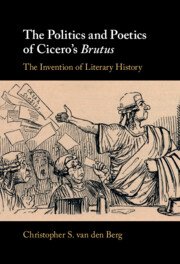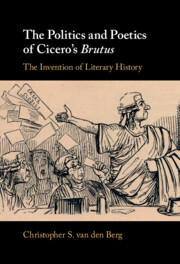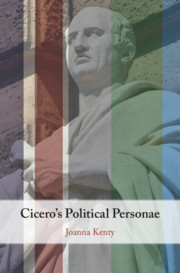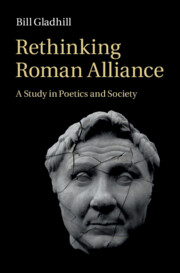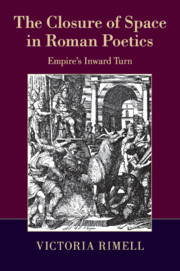The Politics and Poetics of Cicero's Brutus
Cicero's Brutus (46 BCE), a tour-de-force of intellectual and political history, was written amidst political crisis: Caesar's defeat of the republican resistance at the battle of Thapsus. This magisterial example of the dialogue genre capaciously documents the intellectual vibrancy of the Roman Republic and its Greco-Roman traditions. This book studies the work from several distinct yet interrelated perspectives: Cicero's account of oratorical history, the confrontation with Caesar, and the exploration of what it means to write a history of an artistic practice. Close readings of this dialogue-including its apparent contradictions and tendentious fabrications-reveal a crucial and crucially productive moment in Greco-Roman thought. Cicero, this book argues, created the first nuanced, sophisticated, and ultimately 'modern' literary history, crafting both a compelling justification of Rome's oratorical traditions and also laying a foundation for literary historiography that abides to this day. This title is also available as Open Access on Cambridge Core.
- Closely examines the rhetoric of a Roman dialogue to uncover its intellectual and political complexity
- Considers the political difficulties individuals face in a time of civic crisis
- Argues for an important if overlooked milestone in the history of literary theory and literary historiography
- This title is also available as Open Access on Cambridge Core
Reviews & endorsements
‘With this book, Christopher van den Berg has undoubtedly earned the right to occupy a place of absolute prominence in the increasingly dense shelves of critical production on Brutus.’ Alberto Cavarzere, Rivista di Filologia e di Istruzione Classica
Product details
July 2023Paperback
9781009281355
308 pages
229 × 151 × 16 mm
0.47kg
Available
Table of Contents
- Introduction
- 1. Ciceropaideia
- 2. The intellectual genealogy of the Brutus
- 3. Caesar and the political crisis
- 4. Truthmaking and the past
- 5. Beginning (and) literary history
- 6. Perfecting literary history
- 7. Cicero's Attici
- 8. Minerva, Venus, and Cicero's judgments on Caesar's style
- Conclusion.

